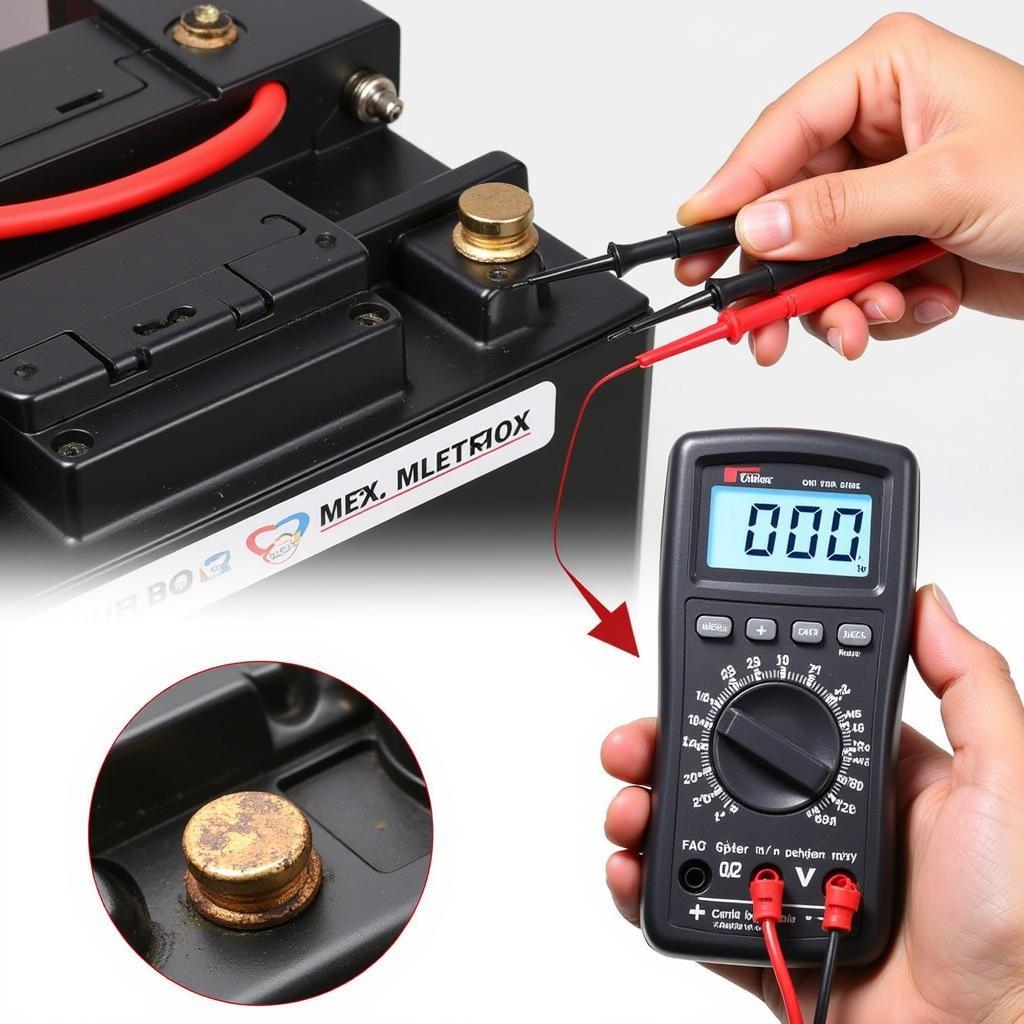Experiencing car troubles? Wondering if it’s your alternator or battery causing the headache? This is a common dilemma, and knowing the difference between alternator problems vs battery issues can save you time and money. This guide provides a comprehensive comparison to help you diagnose the problem accurately.
Identifying the Culprit: Alternator vs. Battery
The alternator and battery are essential components of your car’s electrical system, working in tandem to power everything from the ignition to the headlights. However, they have distinct roles. The battery provides the initial power to start the engine, while the alternator keeps the battery charged and powers the electrical systems while the engine is running. When one fails, it affects the other, leading to similar symptoms. This often makes pinpointing the source of the problem tricky.
Alternator Issues: Symptoms and Diagnosis
Alternator problems often manifest as dimming headlights, flickering dashboard lights, and difficulty starting the car. You might also hear unusual whining or grinding noises from the engine compartment. One way to test for alternator problems is to jump-start your car. If the car starts but dies shortly after, it’s a strong indicator of a failing alternator.
A more definitive test involves using a multimeter to check the voltage across the battery terminals while the engine is running. A healthy alternator should maintain a voltage between 13.5 and 14.5 volts. Lower readings suggest the alternator isn’t charging properly.
Battery Troubles: Signs and Testing
A failing battery can present similar symptoms to a faulty alternator, such as slow engine cranking, dim headlights, and clicking sounds when you turn the key. However, other signs can point towards a battery issue, like a swollen or leaking battery case, or a rotten egg smell.
 Car Battery Testing
Car Battery Testing
Testing the battery involves using a multimeter to measure its voltage. A fully charged battery should read around 12.6 volts. Lower readings, especially below 12.2 volts, suggest a weak or dying battery.
Why is Knowing the Difference Important? Alternator Problems vs Battery
Understanding the difference between alternator and battery problems is crucial for effective troubleshooting. Replacing the wrong component can be costly and won’t solve the underlying issue. For instance, installing a new battery when the alternator is faulty will only provide a temporary fix, as the new battery will also quickly drain.
How a Failing Alternator Impacts the Battery
A failing alternator can’t recharge the battery, leading to a gradual discharge and eventual failure. Continuously running a car with a bad alternator can permanently damage the battery, requiring its replacement as well.
How a Bad Battery Affects the Alternator
While a bad battery won’t directly damage the alternator, it puts additional strain on it. The alternator has to work harder to compensate for the weak battery, potentially shortening its lifespan.
Remote Diagnostics and Software Solutions
Modern vehicles rely heavily on software and electronics. Remote diagnostics and software updates can often identify and resolve underlying electrical issues, sometimes even remotely.
“Remote diagnostics are becoming increasingly valuable in pinpointing the root cause of electrical problems,” says John Miller, Senior Automotive Electrical Engineer at AutoTech Solutions. “They allow us to access vehicle data in real-time, often identifying issues that might be missed during a traditional inspection.”
“Furthermore,” adds Maria Sanchez, Lead Software Engineer at CarCode Diagnostics, “remote software updates can address software glitches that might be contributing to alternator or battery-related issues, offering a quick and efficient solution without physical intervention.”
Conclusion: Alternator Problems vs Battery – Get to the Root of the Issue
Knowing the difference between alternator problems vs battery issues is crucial for effective car maintenance. By understanding the symptoms and conducting proper testing, you can accurately diagnose the problem and avoid unnecessary expenses. Remember, seeking professional help is always recommended, especially for complex electrical issues. Don’t let car trouble put a stop to your journey. With a little knowledge and proactive maintenance, you can keep your car’s electrical system running smoothly.
FAQ: Alternator Problems vs Battery
-
How long does a car battery last? Typically, a car battery lasts between 3 to 5 years.
-
How long does an alternator last? Alternators typically last between 7 to 10 years.
-
Can I drive with a bad alternator? You can drive a short distance with a bad alternator, but it’s not recommended as it will eventually drain the battery.
-
Can a bad battery cause the alternator to fail? A bad battery won’t directly cause the alternator to fail, but it can put additional strain on it.
-
What is the cost of replacing an alternator? The cost varies depending on the make and model of your car but generally ranges from $300 to $800.
-
What is the cost of replacing a car battery? A new car battery typically costs between $100 and $250.
-
Can I test my alternator or battery myself? Yes, you can test both your alternator and battery with a multimeter.
